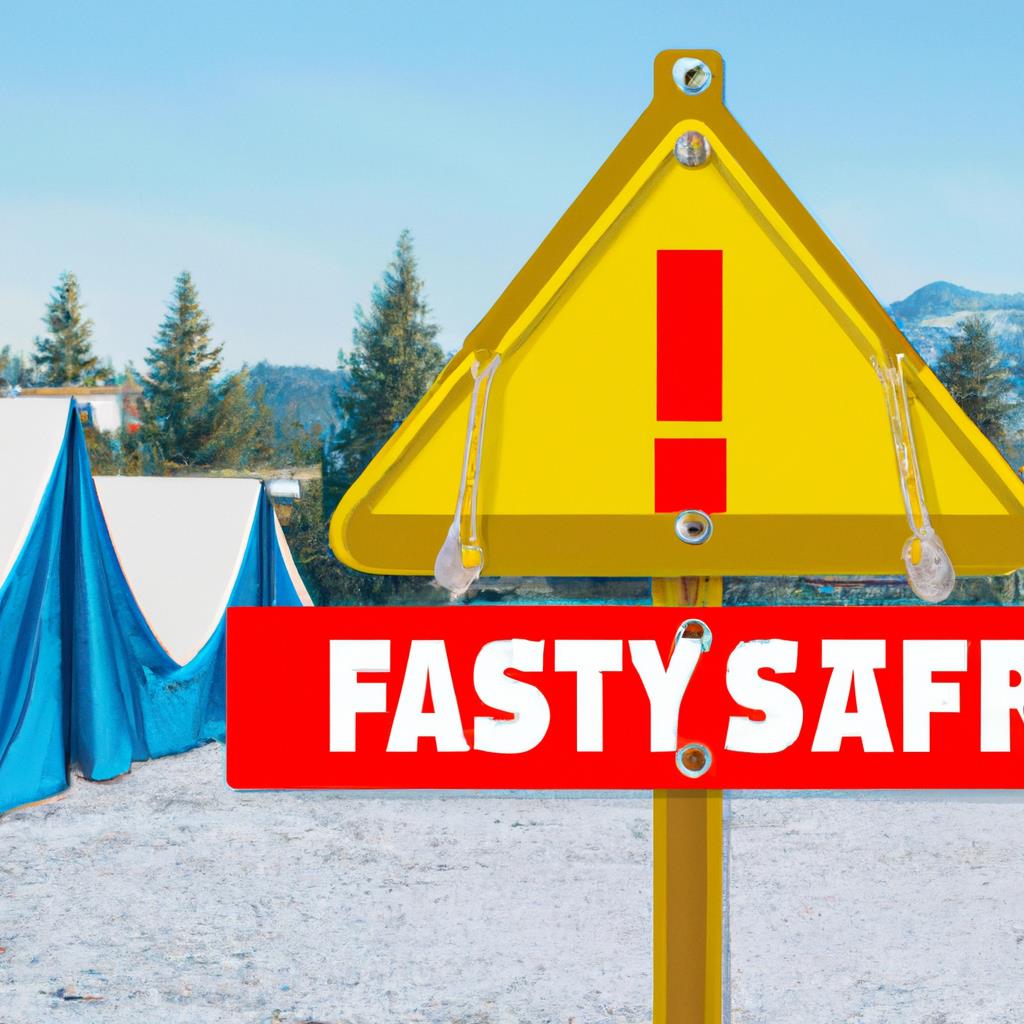Winter camping can be a magical and unforgettable experience, but it also comes with its own set of challenges. In order to have a safe and enjoyable winter camping trip at tenting and camping sites, its important to be prepared and prioritize safety above all else. Here are some tips for ensuring your winter camping trip is a success:
First and foremost, its essential to do your research and choose a tenting and camping site that is suitable for winter camping. Not all campgrounds are open during the winter months, and some may have limited facilities or services available. Look for a site that offers winter camping amenities such as heated restrooms, water access, and designated tenting areas that are sheltered from the wind.
Before heading out on your winter camping trip, make sure you have all the necessary gear and equipment. This includes a four-season tent that is designed to withstand harsh winter conditions, a warm sleeping bag rated for cold temperatures, insulated sleeping pads, and plenty of layers of clothing to keep you warm. Its also important to pack extra food and water, as well as a stove or other means of cooking hot meals.
When setting up your campsite at a tenting and camping site, take care to choose a location that is sheltered from the wind and free from hazards such as falling branches or snow drifts. Clear away any snow or debris from the area where you will be pitching your tent, and use snow stakes or anchors to secure your tent in place. Consider using a tarp or ground cloth underneath your tent to provide an extra layer of insulation from the cold ground.
One of the biggest challenges of winter camping is staying warm and dry. To help insulate your tent and keep out the cold, consider using a tent heater or bringing along hot water bottles to warm up your sleeping bag. Make sure to keep your clothing and gear dry, as wet items can quickly lead to hypothermia in cold temperatures. Consider storing your boots and other gear inside your sleeping bag at night to prevent them from freezing.
Another important aspect of winter camping safety is being prepared for emergencies. Before you set out on your trip, make sure to inform someone of your itinerary and expected return date, and carry a fully charged cell phone or satellite phone in case of an emergency. Its also a good idea to pack a first aid kit, emergency shelter, and extra supplies of food and water in case you get stranded or delayed due to bad weather.
One of the key principles of winter camping safety is to always prioritize safety over adventure. If the weather conditions are too severe or if you are not adequately prepared for the conditions, its better to postpone or cancel your trip rather than putting yourself at risk. Be prepared to adjust your plans as needed and listen to your gut instincts if something doesnt feel right.
When leaving your campsite at a tenting and camping site, make sure to properly dispose of all trash and leave no trace of your presence. This includes packing out all used food containers, empty fuel canisters, and any other garbage you may have accumulated during your trip. Respect the natural environment and follow Leave No Trace principles to ensure that future campers can enjoy the same pristine wilderness that you did.
In conclusion, winter camping at tenting and camping sites can be a challenging but rewarding experience. By taking the time to properly prepare and prioritize safety, you can ensure that your winter camping trip is a success. Remember to do your research, pack the necessary gear, choose a suitable campsite, stay warm and dry, be prepared for emergencies, and always prioritize safety over adventure. With these tips in mind, you can enjoy a safe and unforgettable winter camping experience in the great outdoors.


leave a comment